Introduction
The world of travel and hospitality is undergoing a profound transformation in the digital age. From booking a room to checking out and everything in between, technology is reshaping the guest experience in hotels worldwide. If you’re a tech-savvy traveler, this guide will take you on a journey through the ways hotels are embracing digital innovation to enhance your stay.
Digital Disruption: Revolutionizing the Hotel Experience
The digital age has ushered in a revolution in the world of travel and hospitality. Gone are the days of cumbersome paper maps and physical check-ins; technology has streamlined the entire guest experience, putting the power of choice and customization firmly in the hands of the traveler.
Imagine this scenario: You’re planning a weekend getaway. Instead of visiting a travel agency, you reach for your smartphone. Within minutes, you’ve researched and booked a room at a boutique hotel in a charming, unfamiliar town—all while sipping your morning coffee. As you arrive, there’s no need to wait in line at the reception desk. You receive a notification on your phone with your room details and a digital key. Welcome to the digital age of hospitality.
1. The Digital Booking Revolution:
Your journey begins with the click of a button. Hotel websites and mobile apps have evolved to provide seamless booking experiences. User-friendly interfaces, high-resolution images, and detailed descriptions allow you to explore room options, check availability, and make reservations with ease. Some platforms even offer virtual tours, enabling you to wander through the hotel’s corridors and admire the view from your room before booking.
2. Mobile Magic:
Mobile check-in and keyless entry are changing the game. No longer are you required to stand in line at the front desk. Hotels are adopting mobile check-in processes that allow you to bypass the reception entirely. As you approach your room, your smartphone acts as a digital key, unlocking the door with a simple tap or swipe. Convenience and security intertwine in this tech-savvy solution.
3. Personalization at Its Best:
The magic doesn’t stop there. Hotels are harnessing the power of data to personalize your stay. Preferences you’ve shared, from room temperature to pillow type, are noted and attended to. Your room may be set up just the way you like it when you arrive—extra blankets, a specific coffee blend, and your favorite snacks.
4. The In-Room Revolution:
Once inside your room, you’ll discover a world of tech amenities. Smart TVs offer access to streaming services, so you can catch up on your favorite shows. Voice-activated assistants are becoming commonplace, allowing you to control lighting, temperature, and order room service with a simple voice command. High-speed Wi-Fi is a given, and USB charging ports are strategically placed to keep your devices powered up.
5. Contactless Comfort:
The global pandemic accelerated the demand for contactless services. Digital menus, mobile room service ordering, and contactless payment options have become the norm. QR codes are now your gateway to touchless access to information and services right from your smartphone.
6. Robots and Beyond:
Step into the lobby, and you might encounter a robotic assistant ready to assist with inquiries or deliver room service. These high-tech helpers not only streamline services but also add a touch of futuristic intrigue to your stay.
7. Wellness and Sustainability:
For those prioritizing wellness and sustainability, tech-equipped fitness centers and wellness-themed rooms are on the rise. You can enjoy in-room exercise equipment, air purifiers, and sleep-tracking devices that enhance your well-being during your stay.
8. Security and Peace of Mind:
Safety is paramount, and technology is enhancing security measures. Biometric recognition, such as fingerprint or facial recognition for room access, and AI-powered surveillance systems ensure guest safety.
9. Real-Time Feedback:
Hotels actively seek guest feedback through digital channels. Social media, review platforms, and guest surveys are used to gauge satisfaction and make improvements in real time.
In this era of digital transformation, the hotel experience is no longer just about accommodation; it’s a seamless fusion of technology, personalization, and sustainability. So, whether you’re a business traveler seeking productivity or a leisure traveler seeking relaxation, embrace the digital age and reap the benefits of a tech-enhanced stay tailored to your desires. Welcome to the future of hospitality, where convenience, customization, and comfort are at your fingertips.
Additionally, you can find further information on this topic by visiting this page: McKinsey on Digital Services, “Introducing the Next-Generation …
Your adventure begins with a few taps on your smartphone. Hotels have made booking rooms easier than ever with user-friendly websites and mobile apps. You can browse through room options, check availability, and make reservations seamlessly. Some hotels even offer exclusive mobile app discounts and promotions.
“Your adventure begins with a few taps on your smartphone. Hotels have made booking rooms easier than ever with user-friendly websites and mobile apps. You can browse through room options, check availability, and make reservations seamlessly. Some hotels even offer exclusive mobile app discounts and promotions. This convenience puts the power of choice right in the palm of your hand.”
For additional details, consider exploring the related content available here Comprehensive Guide to Hotel Distribution Channels & Strategies

Long gone are the days of waiting in line at the front desk. Many hotels now offer mobile check-in, allowing you to bypass the reception and head straight to your room. Keyless entry systems, powered by smartphones, grant you access to your room with a simple swipe or tap, providing convenience and security.
“In addition to mobile check-in and keyless entry, hotels are embracing the Internet of Things (IoT) to enhance guest experiences. Smart room controls enable you to adjust lighting, temperature, and even order room service with voice commands or mobile apps, putting you in control of your comfort.”
Looking for more insights? You’ll find them right here in our extended coverage: Vegas’s First Adults-Only Resort to Deliver Digital Capabilities with …

Hotels are using data analytics to personalize your experience. By gathering information on your preferences, such as room temperature, pillow type, and even favorite snacks, hotels can make your stay uniquely comfortable. You might find your room set up just the way you like it upon arrival.
Hotels have entered a new era of personalized hospitality through the power of data analytics. They are now equipped with the ability to not only anticipate your needs but also to cater to your preferences down to the smallest detail. This level of personalization is revolutionizing the guest experience, making each stay not just comfortable but truly exceptional:
1. Tailored Room Atmosphere:
Imagine arriving at your hotel room, and it’s already set to your preferred temperature and lighting. With data analytics, hotels can track your past room climate preferences and adjust the thermostat and lighting accordingly before you even step inside. Whether you like your room cool and dim or warm and well-lit, the ambiance is tailored to your liking.
2. Pillow Perfection:
The choice of pillows can significantly impact the quality of your sleep. Hotels are using data to remember your preferred pillow type, be it feather, memory foam, or hypoallergenic. Upon your arrival, you’ll find your chosen pillow waiting for you, ensuring a restful night’s sleep.
3. Personalized Amenities:
Hotels are taking note of your past requests and preferences. If you’re known for enjoying a particular brand of snacks, beverages, or toiletries, you can expect to find these waiting in your room. It’s a thoughtful touch that makes you feel truly valued as a guest.
4. Customized Dining Experiences:
Data analytics extend to your dining preferences as well. Hotels can curate menus and recommend dishes based on your past choices and dietary restrictions. Whether you’re a vegetarian, a wine connoisseur, or an adventurous foodie, the culinary offerings are tailored to your taste.
5. Streamlined Check-In and Check-Out:
Data-driven personalization also extends to the check-in and check-out process. Hotels use your preferences to expedite these procedures, ensuring a seamless and efficient experience. No more lengthy forms or waiting in line; your stay begins and ends smoothly.
6. Activity Recommendations:
Hotels can suggest activities and experiences in the local area that align with your interests. Whether you’re into cultural attractions, outdoor adventures, or spa retreats, you’ll receive tailored recommendations that enhance your stay and help you make the most of your surroundings.
7. Post-Stay Feedback:
After your stay, hotels continue to use data analytics to gather feedback and improve your future experiences. They take note of your comments and preferences, ensuring that each subsequent visit surpasses the last.
In summary, hotels’ use of data analytics is transforming the concept of personalized hospitality. It’s not just about recognizing your name; it’s about understanding your preferences and seamlessly incorporating them into every aspect of your stay. This level of personalization enhances comfort, convenience, and overall guest satisfaction, making your hotel experience uniquely tailored to you. With data as the key, hotels are not just places to stay; they are destinations that cater to your individual desires, making every visit a memorable and truly exceptional one.
For additional details, consider exploring the related content available here Disruptions in Retail through Digital Transformation: Reimagining …
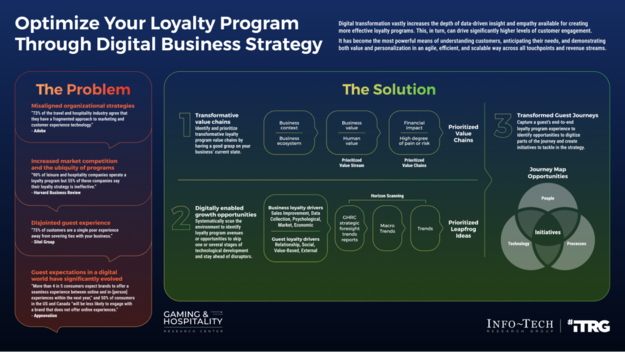
Once inside your room, you’ll discover a host of tech amenities. Smart TVs with streaming services are now standard, so you can catch up on your favorite shows. Voice-activated assistants like Amazon’s Alexa or Google Assistant control room features, from lighting and temperature to ordering room service.
“The integration of technology in hotel rooms goes beyond entertainment. Smart rooms are designed to enhance your stay with convenient features and automation. As you settle into your room, you’ll find that technology plays a significant role in creating a comfortable and personalized environment. Here are some key aspects of technology in modern hotel rooms:
Entertainment: Smart TVs have become a standard feature in hotel rooms. These TVs are not only larger and higher in resolution but also equipped with streaming services like Netflix, Hulu, and Amazon Prime Video. You can easily log in to your accounts and enjoy your favorite shows and movies just as you would at home.
Voice-Activated Assistants: Many hotels have adopted voice-activated assistants like Amazon’s Alexa or Google Assistant to provide guests with a seamless and hands-free experience. You can use voice commands to control various aspects of your room, such as adjusting the lighting, setting the temperature, or even ordering room service. These assistants are programmed to answer your questions and fulfill your requests, making your stay more convenient.
Climate Control: Modern hotel rooms often feature advanced climate control systems that can be adjusted to your preference. You can set the room temperature to your comfort level, ensuring a good night’s sleep, regardless of the weather outside.
Keyless Entry: Some hotels have implemented keyless entry systems, allowing you to access your room and other hotel facilities using your smartphone. This eliminates the need for physical key cards and provides added security and convenience.
Personalized Services: Technology enables hotels to personalize your stay based on your preferences and previous interactions. For example, if you frequently order a particular type of pillow or room service item, the hotel can use this information to enhance your experience during future stays.
High-Speed Internet: Fast and reliable Wi-Fi is no longer a luxury but a necessity for travelers. Modern hotels ensure that guests have access to high-speed internet for work, entertainment, and staying connected with loved ones.
Mobile Apps: Many hotels offer mobile apps that allow you to check in and check out, request services, or even use your smartphone as a room key. These apps streamline your interactions with the hotel staff and enhance your overall experience.
Charging Stations: With the proliferation of devices that require charging, hotels now provide ample USB and power outlets near the bed and work desk to keep your gadgets powered up.
Information and Services: Tablets or interactive screens in rooms provide information about hotel amenities, local attractions, and services. You can easily make restaurant reservations, book spa treatments, or arrange transportation without having to pick up the phone.
In summary, technology has become an integral part of the modern hotel experience. It aims to make your stay more comfortable, convenient, and personalized. From entertainment options to voice-activated assistants and smart room controls, hotels are leveraging technology to meet the evolving expectations of today’s travelers.”
To delve further into this matter, we encourage you to check out the additional resources provided here: Hotel Room Tablets: The Complete Guide | Cvent Blog
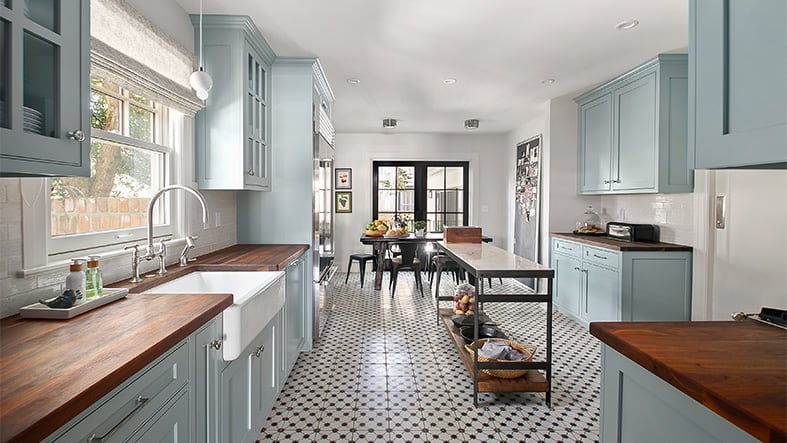
The pandemic accelerated the adoption of contactless services. Digital menus, mobile room service ordering, and contactless payment options are now commonplace. QR codes provide touchless access to information and services right from your smartphone.
“As travelers prioritize safety and hygiene, contactless services have become a standard offering in the hospitality industry. QR codes, in particular, have emerged as a versatile tool, enabling guests to access information and services seamlessly while minimizing physical contact. This technology-driven shift in the hotel experience is likely to persist as a guest preference even beyond the pandemic.”
If you’d like to dive deeper into this subject, there’s more to discover on this page: YOTEL Takes the Next Step in Their Digital Evolution with INTELITY
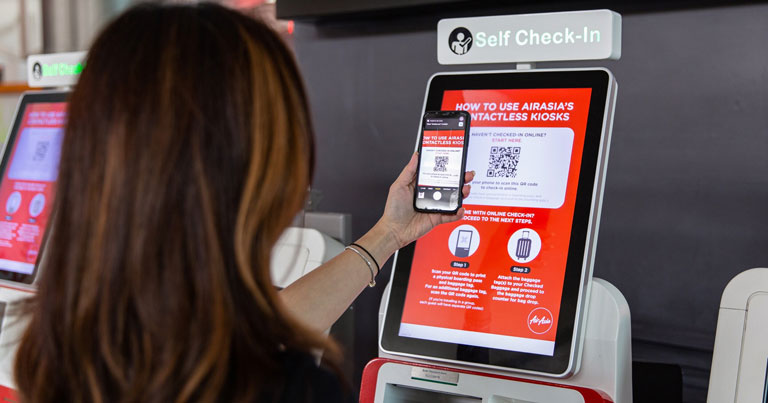
Many hotels have enlisted robots to provide services. These robotic helpers can deliver room service, provide information in lobbies, or even sanitize common areas. They not only enhance efficiency but also add a futuristic touch to your stay.
The integration of robots into hotel operations marks a remarkable leap into the future of hospitality. These mechanical marvels have not only revolutionized the way services are provided but have also become a defining feature of the modern hotel experience, adding a futuristic and tech-savvy dimension to your stay.
1. Seamless Room Service:
Robotic helpers have redefined room service. With their precision and efficiency, they can deliver meals, snacks, and amenities directly to your room. Whether it’s a late-night craving or a quick coffee, these robots ensure that your requests are met promptly and accurately, enhancing the overall convenience of your stay.
2. Information Concierges:
In hotel lobbies and common areas, robotic concierges are ready to assist. They can provide information about the hotel’s facilities, nearby attractions, and dining options. These friendly, digital assistants ensure that guests have all the information they need at their fingertips, simplifying their exploration of the hotel and its surroundings.
3. Sanitization Guardians:
Especially in the wake of global health concerns, robotic sanitization has become a critical aspect of hotel operations. Robots equipped with UV-C lights or disinfectant sprayers meticulously sanitize common areas, elevators, and high-touch surfaces. Their unwavering commitment to cleanliness adds an extra layer of safety and peace of mind for guests.
4. Language Ambassadors:
Robotic language translation services are a boon for international travelers. These robots can bridge language barriers, facilitating smooth communication between guests and hotel staff. This ensures that guests from diverse backgrounds feel welcome and understood during their stay.
5. Interactive Entertainment:
Some hotels have taken robotic services a step further by introducing entertainment robots. These charismatic companions can tell stories, play games, or even dance with guests. They provide a playful and memorable experience, especially for families with children.
6. Sustainability Initiatives:
Robotic services align with sustainability efforts. They are energy-efficient and can operate 24/7, reducing the need for human staff to work extended hours. Additionally, their precision minimizes waste, making them eco-friendly additions to the hotel ecosystem.
7. Memorable Impressions:
The presence of robots in hotels adds a memorable and futuristic touch to your stay. Whether it’s a robot delivering your morning coffee or a robot providing information with a friendly smile, these interactions create lasting impressions and add a sense of novelty to the guest experience.
8. Evolving Technology:
As technology advances, so do the capabilities of hotel robots. Future iterations may include even more sophisticated features, such as voice recognition, personalization, and the ability to perform increasingly complex tasks.
In essence, the introduction of robots into hotel services is not just a practical advancement; it’s a glimpse into the evolving landscape of hospitality. These robotic helpers enhance efficiency, improve convenience, and provide a touch of futuristic charm to your stay. As they continue to evolve and adapt to guest needs, they underscore the ever-changing nature of the hotel industry, where innovation is a driving force in creating exceptional and memorable experiences for travelers.
To expand your knowledge on this subject, make sure to read on at this location: Opinion Paper: “So what if ChatGPT wrote it?” Multidisciplinary …
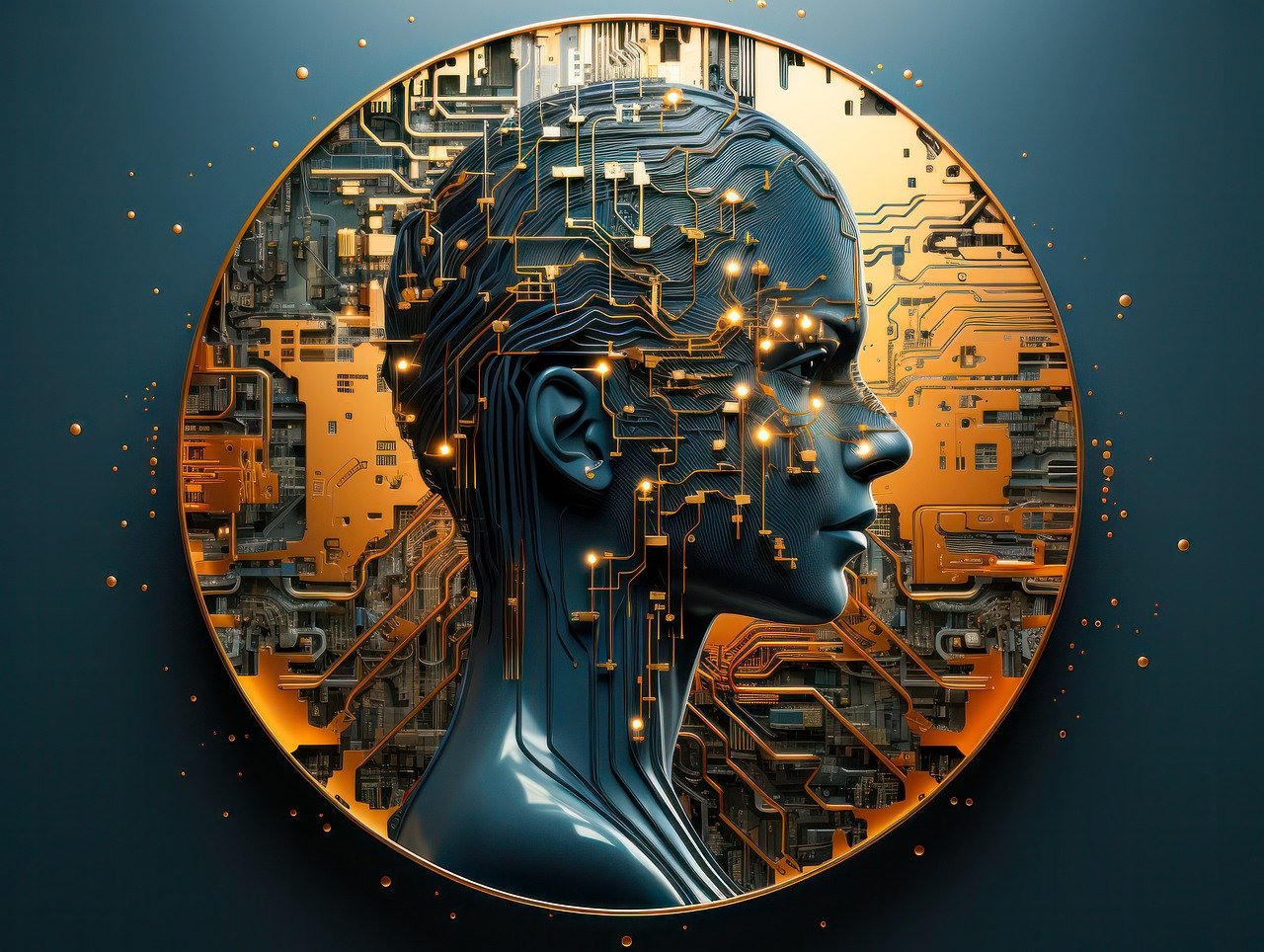
Health-conscious travelers will appreciate the fitness and wellness tech available in some hotels. Smart gym equipment offers personalized workouts, and wellness-themed rooms may feature in-room exercise equipment, air purifiers, and sleep-tracking devices.
“For travelers who prioritize their health and well-being, certain hotels have gone the extra mile to cater to these needs. They offer state-of-the-art fitness and wellness technology, elevating the guest experience. Smart gym equipment provides tailored workouts, while wellness-focused rooms come equipped with in-room exercise gear, air purifiers, and sleep-tracking devices. These thoughtful amenities ensure that health-conscious guests can maintain their routines and enhance their overall well-being during their stay.”
For additional details, consider exploring the related content available here Here’s to Your Health | Sharecare | Hawkins International PR
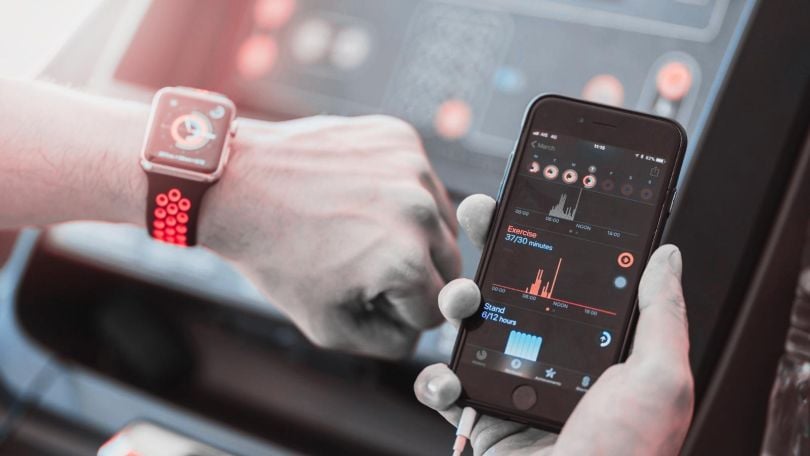
Technology plays a significant role in sustainability efforts. Smart energy management systems automatically adjust lighting and climate control based on guest occupancy, reducing energy waste. Apps can provide insights into energy usage and encourage eco-friendly behavior.
Furthermore, technology-driven sustainability extends to waste reduction. Hotels are implementing digital systems to track waste production, recycling efforts, and sustainable procurement practices. These tools not only minimize environmental impact but also improve operational efficiency.
Explore this link for a more extensive examination of the topic: The Sinclair: The World’s First All-Digital Tech Hotel

Virtual reality (VR) and augmented reality (AR) are enhancing guest experiences. VR can transport you on virtual tours of the hotel or its surroundings, while AR apps provide real-time information about nearby landmarks just by pointing your smartphone camera.
The integration of virtual reality (VR) and augmented reality (AR) into the realm of hospitality marks a revolutionary leap in enhancing guest experiences. These immersive technologies don’t merely complement a stay; they transform it into an unforgettable journey of discovery and exploration.
Virtual reality, in particular, has the power to transport guests to extraordinary realms without ever leaving the comfort of their hotel room. Imagine slipping on a VR headset and being instantly whisked away on a captivating tour of the hotel itself or its breathtaking surroundings. You can wander through the corridors, admire the architecture, and even preview the amenities before you set foot in the physical space. It’s a prelude to the experience, igniting excitement and anticipation while providing an intimate understanding of what awaits.
On the other hand, augmented reality apps harness the capabilities of your smartphone to provide real-time, location-based information. Imagine strolling through the hotel’s neighborhood and simply pointing your phone’s camera at a landmark. Instantly, an overlay of information appears on your screen, offering historical facts, nearby dining options, or interesting trivia about the place you’re observing. It’s like having a knowledgeable tour guide in your pocket, enhancing your exploration and deepening your connection to the environment.
Moreover, these technologies aren’t confined to just the hotel premises. They extend to the broader destination. Guests can use AR apps to navigate city streets, learn about local culture, or discover hidden gems that might otherwise remain undiscovered. It’s a personalized and enriching way to explore, allowing you to tailor your journey to your interests and curiosities.
Beyond exploration, VR and AR offer creative avenues for relaxation and entertainment within the hotel room itself. Guests can indulge in virtual relaxation experiences, watch immersive content, or even enjoy virtual gaming—all within the confines of their accommodation.
In conclusion, the fusion of VR and AR with the world of hospitality transcends mere convenience; it’s a gateway to unparalleled experiences. These technologies enrich every facet of a guest’s journey, from the prelude of anticipation to the real-time discovery of the surroundings, and even entertainment within the room. The result is not just a stay—it’s a transformative adventure that leaves an indelible mark and sparks a new era of immersive travel.
For additional details, consider exploring the related content available here Disruptions in Retail through Digital Transformation: Reimagining …
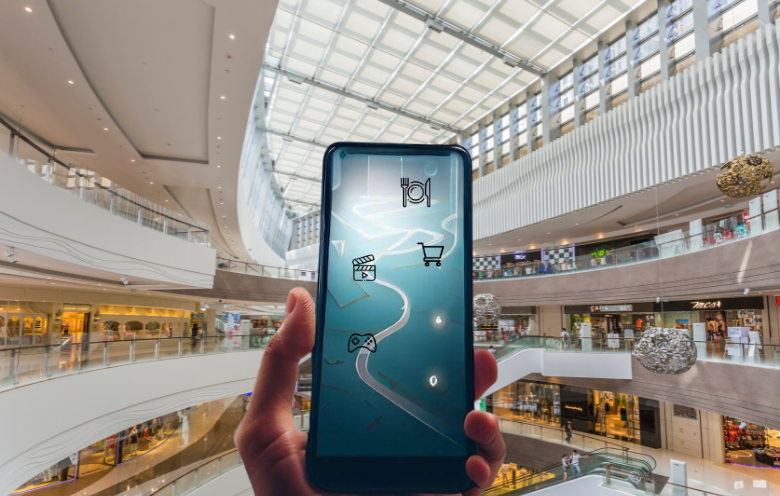
Ensuring guest safety is a top priority. Biometric recognition, like fingerprint or facial recognition for room access, and AI-powered surveillance systems help hotels maintain high levels of security.
Modern technology, including biometric recognition and AI surveillance, reinforces hotel security, creating a safe and comfortable environment for guests. These innovations ensure peace of mind throughout your stay.
For a comprehensive look at this subject, we invite you to read more on this dedicated page: Here’s to Your Health | Sharecare | Hawkins International PR

Hotels actively seek feedback through digital channels. Social media, review platforms, and guest surveys are used to gauge satisfaction and make improvements in real time.
“Feedback from guests is invaluable. Hotels actively encourage guests to share their experiences and reviews on platforms like TripAdvisor, Yelp, and social media. This not only provides valuable insights but also helps hotels build their online reputation.”
Additionally, you can find further information on this topic by visiting this page: Travel 2.0 Takes Flight

Conclusion
In conclusion, the tech-savvy traveler’s guide to hotels in the digital age revolves around convenience, personalization, and sustainability. As technology continues to advance, hotels are harnessing its power to create more immersive, efficient, and memorable stays for their guests. So, whether you’re traveling for business or leisure, embrace the digital age, and enjoy the benefits of a tech-enhanced stay that caters to your needs and preferences.
Embracing the Future: The Ever-Evolving Digital Hotel Experience
In conclusion, the digital revolution in the hospitality industry is an ongoing journey, where convenience, personalization, and sustainability have become the guiding stars. As technology advances at an unprecedented pace, hotels are committed to staying ahead of the curve, not just meeting but exceeding the expectations of tech-savvy travelers.
The key to this transformative experience is adaptation. Hotels continually integrate cutting-edge tech solutions to create stays that are more immersive, efficient, and memorable. These innovations are not limited to one particular type of traveler; whether you’re on a business trip or enjoying a leisurely vacation, the digital age enhances your experience in countless ways.
Continuous Personalization:
In the future, personalization will reach even greater heights. Imagine a hotel that knows not only your room temperature preference but also your preferred lighting ambiance, the kind of music that soothes you, and your favorite morning beverage. Hotels will use advanced artificial intelligence and data analytics to anticipate your needs before you even express them.
Enhanced Sustainability:
Sustainability efforts will continue to evolve, driven by technology. Smart energy management systems will become even more sophisticated, aiming not only to reduce energy consumption but also to generate clean, renewable energy on-site. The goal is not just to minimize environmental impact but to leave a positive ecological footprint.
Innovative Wellness:
Wellness-focused amenities will keep pace with the latest advances in health tech. Imagine a hotel room with sensors that monitor your sleep patterns and adjust the mattress accordingly. Or an in-room virtual reality system that transports you to a serene natural setting, reducing stress and promoting relaxation.
Seamless Integration:
As the Internet of Things (IoT) expands, hotels will seamlessly integrate with the devices and services you use in your daily life. Your smartwatch might provide you with hotel-specific notifications and access, while your voice-activated assistant becomes your personal concierge, making restaurant reservations and suggesting local activities with just a word.
Sustainability and Social Responsibility:
Sustainability will extend beyond eco-friendly practices. Hotels will increasingly focus on social responsibility, supporting local communities and engaging in ethical tourism practices. Travelers will have the option to choose accommodations that align with their values, contributing to meaningful social and environmental causes.
Immersive Experiences:
Immersive technologies like virtual and augmented reality will offer guests unique experiences that blend the physical and digital worlds. From historical reenactments in the lobby to virtual city tours from the comfort of your room, hotels will transport you to new dimensions.
As technology continues its rapid advancement, the possibilities for enhancing the hotel experience are limitless. The digital age is reshaping the future of travel, and hotels are at the forefront of this transformative journey. So, whether you’re a tech enthusiast or simply seeking a more convenient and personalized stay, the digital age has something extraordinary in store for your next hotel experience. Embrace it, and let technology elevate your journey to new heights of comfort and delight.
For additional details, consider exploring the related content available here Metaverse beyond the hype: Multidisciplinary perspectives on …
More links
Should you desire more in-depth information, it’s available for your perusal on this page: Does Marriott Offer iPhone Chargers? Exploring Convenient …
